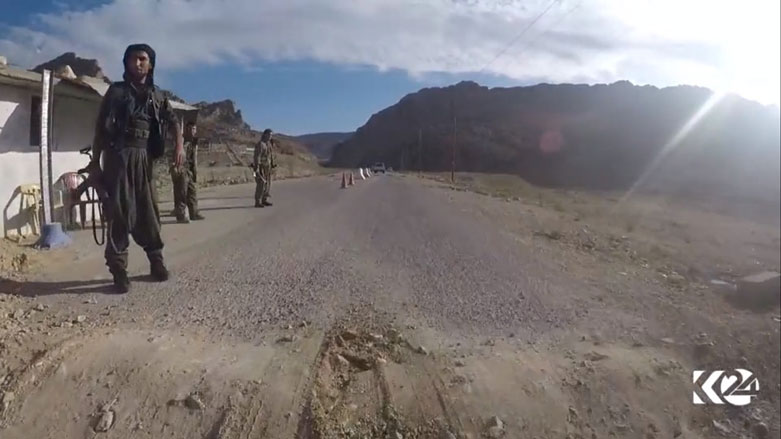PKK's Shingal presence attracts Turkey intervention: Yezidi Commander

ERBIL, Kurdistan Region (Kurdistan24) – The existence of the Kurdistan Workers’ Party (PKK) in the Kurdish Yezidi (Ezidi) city of Sinjar (Shingal) risks the intervention of Turkey in the area, said an Ezidi Commander on Saturday.
“PKK bases on Shingal Mountain will have a negative impact on the region and turn Shingal to a battlefield,” Qassim Shasho, an Ezidi Peshmerga Commander, told Iraqi al-Sumariya.
Shasho called on the Kurdistan Regional Government (KRG), the federal government of Iraq and the US-led coalition to protect the security of the area and pressure the PKK to leave the region.
He also mentioned most of the Ezidis urge the PKK to leave Mount Shingal.
“PKK has dragged tens of Ezidi teenagers to their forces, and this is a violation of international laws,” the Commander added.
Previously, Mahma Khalil, the Mayor of Shingal, told Kurdistan24 they thanked the PKK for helping Ezidi people in the battle against the Islamic State (IS), “but now call on them to leave the area.”
The PKK’s armed-wings on Shingal Mountain had stated before that about 500 of their fighters were ‘martyred’ in the fight against IS, claiming a large portion of Ezidis supports them to stay.
Shingal is located in the southwest of the Kurdistan Region. In August 2014, IS occupied the city and expanded its control in the region.
Following the occupation of the city, PKK fighters started to emerge in the area, claiming they came to protect Ezidis from the jihadist group.
In November 2015, Kurdish Peshmerga forces with the support of the coalition warplanes successfully liberated Shingal from IS.
Since then, the area remains largely destroyed, and no reconstruction took place to encourage displaced people to return due to a lack of financial support and political tensions among Kurdish parties.
Editing by Karzan Sulaivany

.jpg)